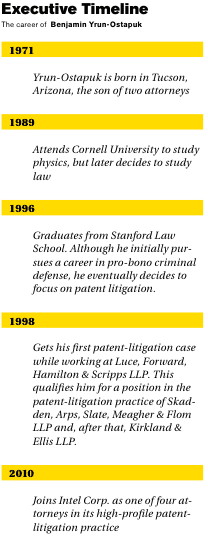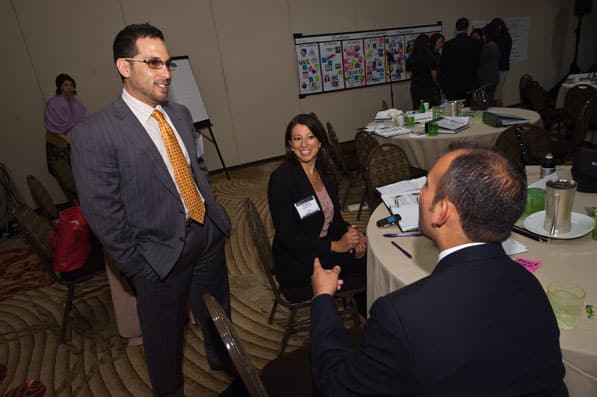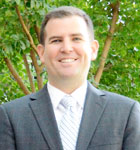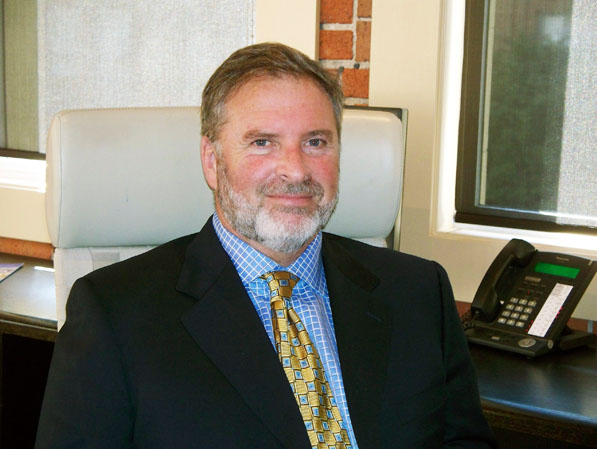 Why did you become a lawyer?
Why did you become a lawyer?
I grew up wanting to be a physicist and was a math/science guy in high school, so I went off to Cornell and studied physics. Within a couple years, however, I realized I was not going to be the next great Nobel Prize winner. On the other hand, I could read and write really well, so over time I drifted into law. Ultimately, I thought, “Hey, I sure would like to fuse my interest in science and math with law.” So, I started getting into patent litigation, and I’ve really, really enjoyed it.
What, exactly, is patent litigation?
Just because someone’s a brilliant scientist doesn’t mean they can communicate their ideas in a nontechnical way to other people. There’s a serious need for somebody that can serve that translation function. With patent litigation, you’ve got to get down into the weeds with hardcore scientists, then ultimately communicate their concepts in a really easily understandable way to either a lay jury or lay judges. So, I basically get to meet with all these brilliant scientists, engineers, and experts in the field and have them tutor me in the stuff I’m interested in anyway. It’s like watching custom Discovery Channel because the scientists and engineers at Intel are breaking the laws of physics every two years by making newer, faster, smaller devices. I get paid to spend time with these people. Then, when there’s a case Intel’s involved in—whether it’s as a plaintiff or defendant—I get to decide with my legal hat on: What’s the most advantageous way to approach this from a litigation perspective? How do I position my legal argument in a way that has in mind what the technical reality is, but then also is very much about rhetorical strategy and communication? It’s pretty much a dream-come-true position.
Why is patent litigation so important for a company like Intel?
Motorola’s got not just the phone, but also the docking station that turns the phone into a computer. Apple’s coming out with iPads and other things that turn on their head traditional ideas about what a desktop computer is. And Google’s buying handset makers so they can get away from being just a search engine company. Everybody’s colliding into one another’s market segments, but none of the legal relationships have been worked out yet. So, people are trying to either use patents they already have or acquire patents, then they’re bringing lawsuits against each other to basically put taxes on each other’s products through litigation-based settlements and licenses. We haven’t seen that kind of company-to-company litigation in a generation.

It sounds like a pretty exciting time to be in your position. What’s next?
Right now, I’m working on broadening my business acumen—thinking like a businessperson, not just a lawyer. That to some extent is a new gig for me. Longer term, I definitely would like to serve in a board role or in some other senior executive role. Number one, I think that would be really personally interesting. Number two, I have a renewed appreciation for the extent to which that brings a different kind of power and voice to the Hispanic community, because it enables you to support people underneath you and to open people’s minds and hearts who aren’t of your heritage.
Speaking of the Hispanic community, what’s your advice for young Latinos in corporate America?
In top-level corporate America, there’s still a big focus on credentials. Those credentials give you so much more ability and flexibility, but to get them you have to be willing to bite the bullet and make some sacrifices. Life definitely isn’t balanced on a day-to-day basis, and that can be particularly hard in our community, with its strong importance on family ties and family events. It’s hard, but if you can hang on and make whatever sacrifices you need to make in the short term, you’ll open so many doors in the long term.

